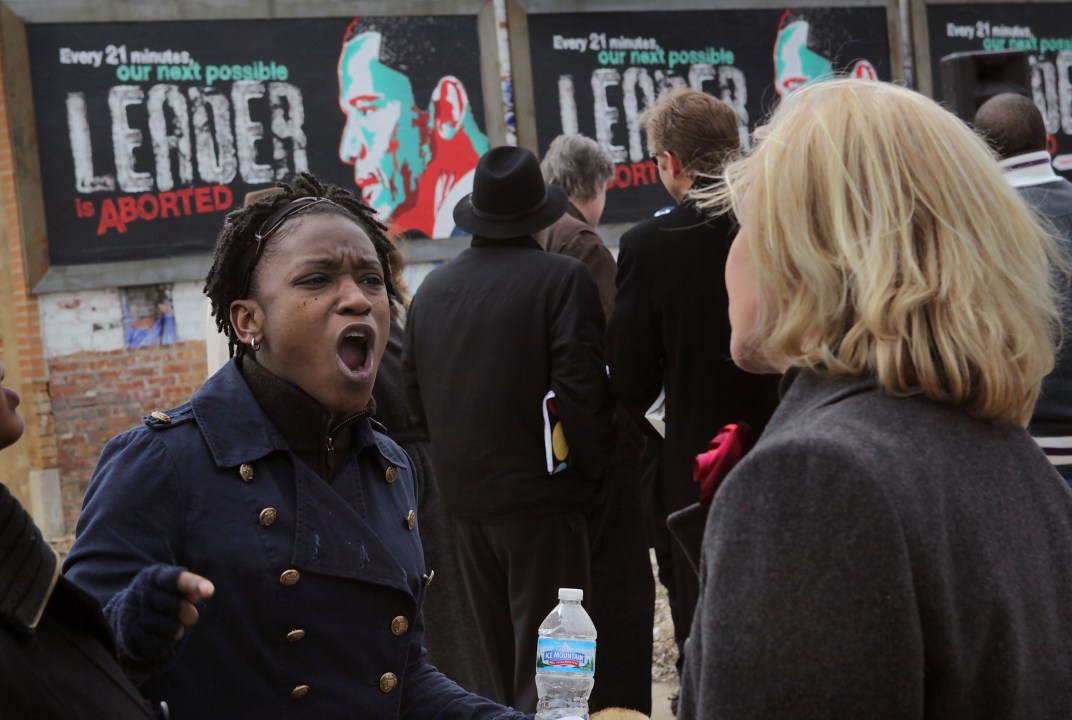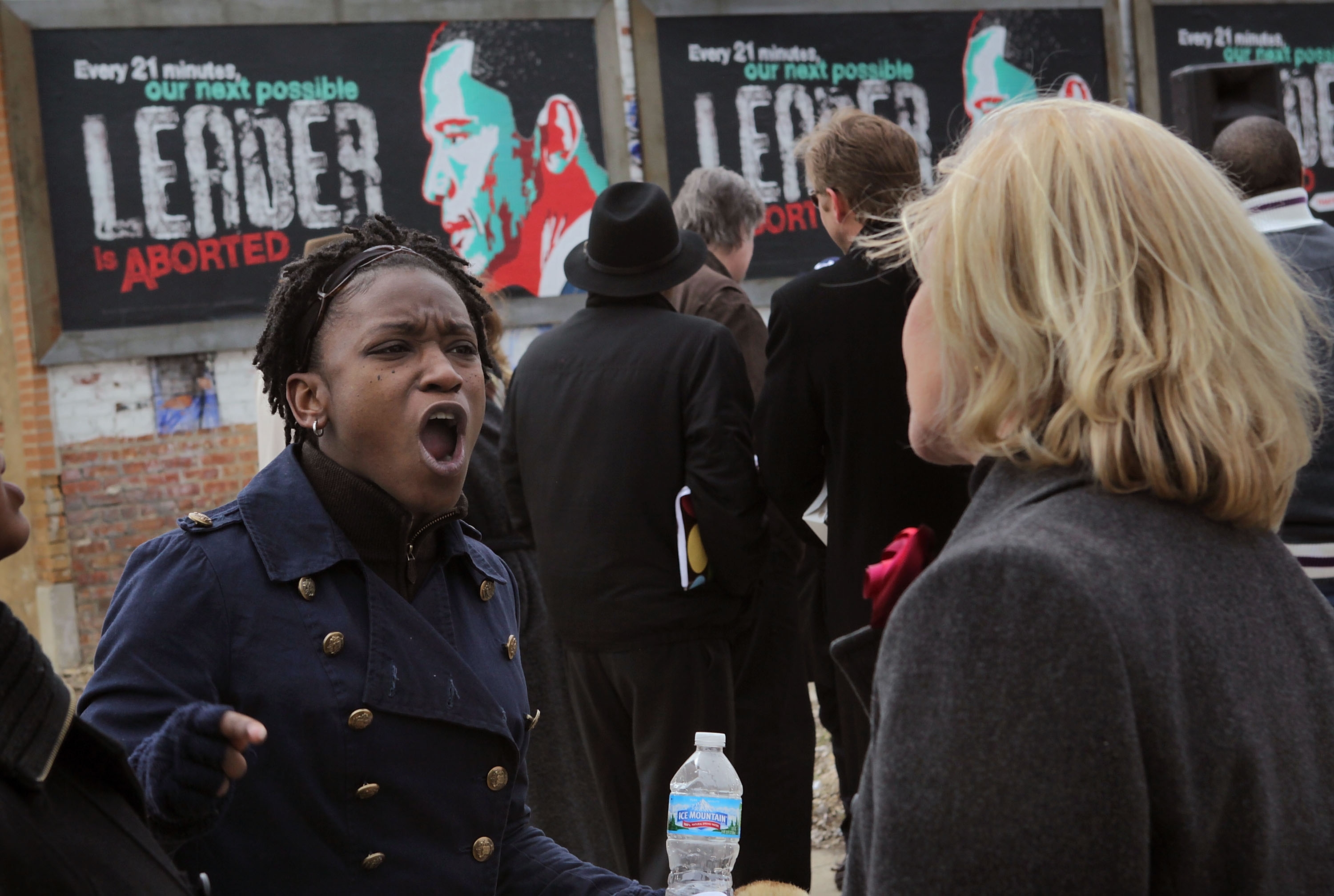Way back in my debating days at Trinity College, Dublin we knew you could guarantee large crowds and impressively – that is, pleasingly – bad-tempered debates twice a year. These were the annual debates on Northern Ireland and abortion. And they really were annual fixtures during which, for years on end, the same arguments were deployed with the same passion and no-one’s views were ever changed by anything they heard.
In those days it was usually pretty clear who the bad guys were too. In the case of abortion it was anyone speaking as a representative of the Society for the Protection of the Unborn Child or, more generally, anyone whose views seemed dictated by the Roman Catholic Church. These were the people standing in the way of Ireland’s journey to modernity. They were the extremists.
The X-Case – in which the Irish government attempted to prevent a young rape victim from traveling to England to abort her pregnancy – was still a raw, painful memory. This was a culture war right enough, and, as students at Ireland’s most liberal university, we knew who was right. We were.
Looking back, I still think we probably were right but there was a smug arrogance about our certainty too and, being so certain, we overlooked the importance of empathy and generosity of spirit and imagination. So, of course, did the opposition but that was their problem, not ours.
I mention all this because, in the maelstrom of commentary and outrage prompted by Todd Akin, Julian Assange and George Galloway we’ve seen partisans on all sides (but, perhaps, especially those most appalled by their comments) assert their monopoly on righteousness. Thus rape is always rape and abortion is always abortion and there’s precious little room for nuance or complexity.
This is not surprising. These are treacherous waters in which to sail. Perhaps certainty makes navigating them a simpler business. Even so, all this certainty requires us to pretend to believe in things that, deep down, we know are not the case. And once one begins to acknowledge ambiguity it becomes harder to hold any line at all.
But we know that not all rapes are equal. We really do. The law may need clear lines dividing the legal from the impermissible but we know that real life is not so simple. We know, to take just one example, that a 16 year old sleeping with a 15 year old may be technically guilty of statutory rape and we know that this is very different from a 42 year old having sex with a 15 year old even if, in the latter example, the sex is consensual.
Statutory rape may be a special case but there are thousands and thousands of American teenagers whose names are now listed on registries of sex-offenders because they’ve slept with their girlfriends. This is a non-trivial place to be.
But even if we concede that statutory rape is or can sometimes be different, we can also perceive that there’s a difference between other kinds of rape too. That is, rape is always awful but some rapes are more awful than others. That’s one reason why, even in the western world, there are considerable differences between jurisdictions about what actually constitutes a rape. It’s also why some rape convictions result in heavier prison terms than others. To be clear, this isn’t to say that “date rape” is OK merely to observe that it’s not quite – or at least not necessarily quite – the same thing as, say, a gang-rape at knife-point or the use of rape as an act of wartime terror.
And so to abortion. I suspect Todd Akin’s mistaken belief that the human body can “shut down” to prevent pregnancy in the case of what he inelegantly – make that stupidly – terms “legitimate rape” stems from a half-formed suspicion that if you denied this and allowed abortion in cases where pregnancy was the result of “forcible rape” then more (or at least some small number more) women would claim to have been raped so they might then be permitted to abort their pregnancy. This is not an attractive thought or a noble way of thinking.
However, it is worth noting that this extremism – if that is what you consider it – has its mirror partner on the pro-abortion side of the argument too. Most Americans oppose partial-birth abortions, for instance. And I suspect that many of those who oppose prohibiting such procedures do so not because they consider partial-birth abortion just the same as an abortion carried out in the 12th week of pregnancy but because they fear, perhaps with good reason, that conceding any limit on abortion (even in very rare cases) opens the way to further restrictions on abortion. An appalling procedure must be defended to protect procedures you find less appalling. This too is not an attractive thought or especially noble way of thinking.
But there is a cold logic to it nonetheless just as there’s a cold rationalism to opposing abortion exceptions even in the case of rape. Indeed, it’s the majority of us who lie between these extremes whose views are mixed or woolly or hopelessly inconsistent. (Incidentally, I commend Ross Douthat’s latest column on this.)
Again, there’s a difference between what is moral, what is legal and what is politically feasible. It is illogical to think that personhood begins at some point towards the end of the first trimester but, at least in Britain, that’s the sense – half-formed, perhaps – a plurality of the population shares. If this weren’t the case then abortions would be legal at any point in pregnancy. But they aren’t because most of us feel, intuitively that some abortions, if they were legal, would be much worse than others.
Increasingly, I suspect, we think that abortions after the point at which medical progress means the infant might have a viable chance of life outside the womb, are morally questionable. The divide between abortion and infanticide is ever blurrier.
The argument about when life actually begins has always struck me as mildly irrelevant. What matters more, surely, is that abortion terminates the possibility of life (assuming the pregnancy proceeds in full health) and that, accordingly, even those abortions carried out as early in the process as possible are, rationally speaking, different in degree not kind to those abortions most of us consider ethically abhorrent.
The law’s concerns are different. The law is concerned with regulating a practice that would, if it were illegal, be driven underground. Legal abortion makes abortion safer; it also probably makes it less rare. It’s comparable to, if also more complicated than, the arguments about drug use or prostitution.
Even if one accepts – with whatever degree of reluctance – that abortion should be legal it does not follow that all abortions, even in the first trimester, are created equal. Moreover, there’s a difference between the particular and the general. That is, an individual may have a compelling reason for aborting a fetus diagnosed with Down Syndrome; the consequences of a society-wide trend to aborting all (or almost all) such supposedly “non-perfect” fetuses are more morally troubling. (What comes next?) Something similar might be said of sex-selective abortion.
And what of repeat abortions? Approximately one third of abortion procedures in the UK are carried out on women who have previously terminated a pregnancy. The figure is reckoned to be even higher in the United States. In some cases these abortions are the result of contraceptive-failure. Often they are not.
It might be stretching the argument to claim that there are large numbers of women for whom abortion is just another form of contraception but is there a difference – morally, not legally – between a first abortion a fifth termination? I think there must be even if I also think it’s impossible to craft laws that make this kind of distinction.
Again, the fact that something is – or should be – legal is not the same as condoning that act. There are things that can be legal but ethically dubious. One abortion might be unfortunate; repeat abortions can look more like some kind of callous carelessness. The former can be forgiven by many people (if often reluctantly) the latter circumstance is a different matter even if, again, the general trend is more horrifying than any particular individual case may be. It’s a kind of failure.
So there are extremists on both sides of these arguments even if, in general, the press (in both the UK and the USA) tends to suggest that only one side is extreme. In part that’s because there are more anti-abortion-in-all-cases campaigners than there are any-abortion-is-fine-and-what’s-your-problem? campaigners on the other. But it’s also the case that one extreme is generally considered more beyond the pale than the other.
Simply saying that rape is rape or that abortion is abortion makes some kind of sense so long as you don’t then begin to think about what lies beneath the surface of these claims. It’s why, I think, we claim to be more certain about these things than we often really are.








Comments